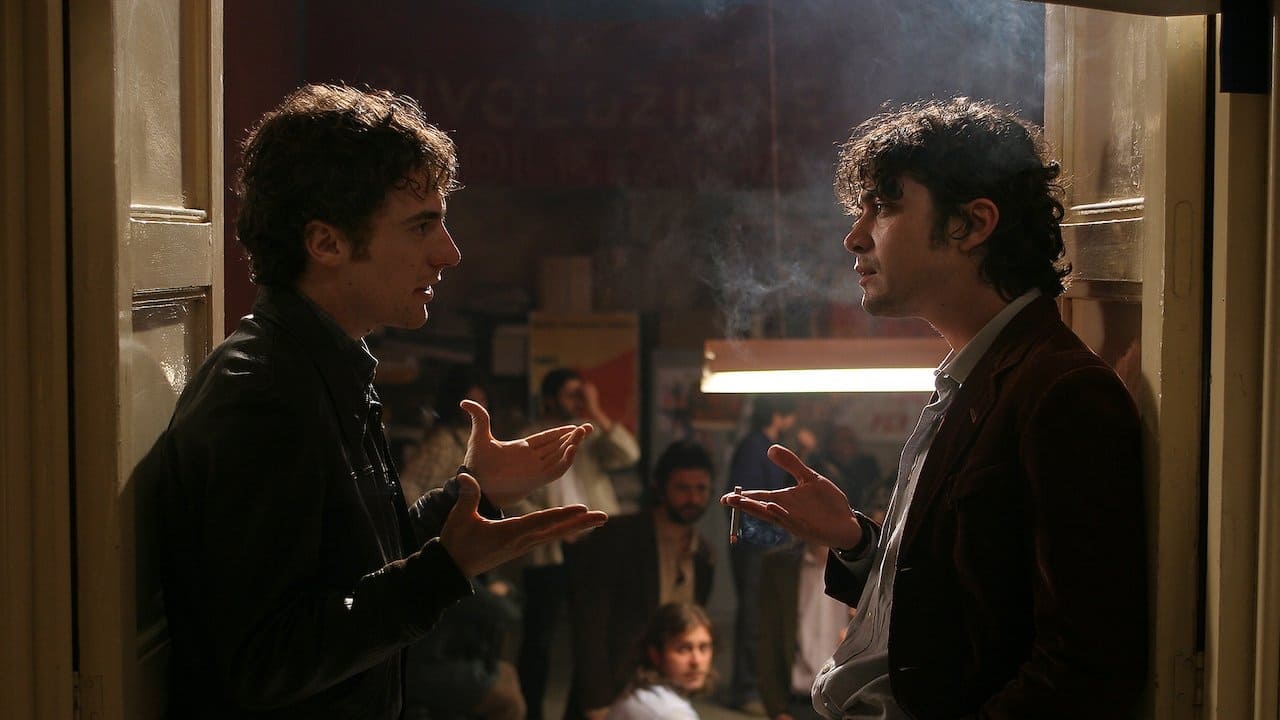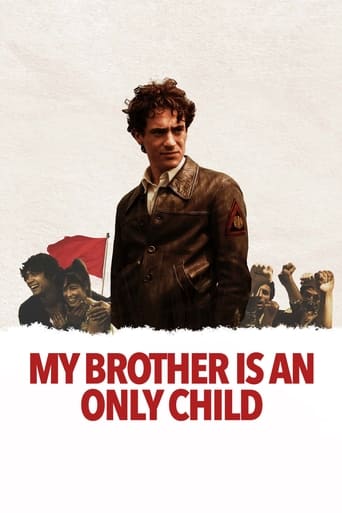

Like the ground-breaking Best of Youth, My Brother is an Only Child (Mio fratello è figlio unico) covers a key period of political turmoil in Italian history seen in a relatable context from the perspective of an ordinary family. Daniele Luchetti enlists the screenwriters of the earlier successful TV mini-series Sandro Petraglia and Stefano Rulli and manages to bring the same sense of passion and urgency to Antonio Pennacchio's original novel and the autobiographical elements that inspired it.My Brother is an Only Child covers a more condensed period of political turmoil from 1962 to 1977 that had an intense impact on a generation not only in Italy, but in many parts of Europe and the USA. There's something about the Italian experience however that manages to bring the swirl of forces at work into even greater focus, particularly in the way that they impact on the Benassi family, living significantly in the recently built town of Latina, founded by Mussolini in the fascist style. Developed entirely in eight weeks, the cracks however are now beginning to show.The times they are a-changing and the former adherence to authority - mainly religious in the Benassi family - is being challenged by their two sons Accio and Manrico. The older brother Manrico has already developed left-wing revolutionary tendencies, and it doesn't take more than a revealing photo of actress Marisa Allasio to cause a crisis of faith in his younger brother Accio who has gone into a seminary in 1962. Accio however also has a crisis of faith in the Communism following the Cuban missile crisis, and turns instead to Fascism, recognising or believing that the ideals and achievements of Il Duce weren't all bad.That's quite an ideological split in the Benassi family and it's compounded by the fact that they are quite a bunch of headstrong hotheads. Particularly the young Accio, who is still thrashing around for something to believe in, leading him down some very dark alleys, but Manrico also takes his activism to extremes. As dissatisfaction spills over onto the streets in the late sixties in mob violence, this results in some pronounced family tensions, but there are also romantic complications that reflect the film's treatment of the theme of loss of innocence.Daniele Luchetti's pacy direction holds the wide dynamic of the film together well, getting right to the heart of the Italian passions and its fervour for life. Avoiding any kind of artificial 60s/70s period recreation (of the kind seen for example in Bertolucci's The Dreamers), and eliciting engaging performances from a young cast, My Brother is an Only Child has a wonderful naturalistic freshness and immediacy that speaks about love and youth, about ideals and disillusionment that speaks about life rather than making any political points specific only to Italy.
... View MoreThe political backdrop of this 60s character drama is both nostalgic and frightening - that disaffected and rebellious Accio finds himself so easily taken in by a Fascist mentor strikes parallels with the our own young men turning to extremism or street violence in a search of identity. Accio clashes dramatically with his older brother, the hip, good-looking communist, but the story not so much about political ideals as their expression of familial jealousies and personal moral development.The tensions and affections of this struggling working class family, portrayed by all with genuine emotion. The dialogue is witty and charming and not unlike other memorable Italian films (Il Postino, Cinema Paradiso) the characters come across almost too resoundingly. This gives the film a well-crafted theatrical quality, that is engaging, well-paced and very satisfying.
... View MoreSaw this as part of the London Film Festival, and was expecting a belter. And how disappointed was I? VERY.What could have been a very interesting look at how different political views can co-exist within the family instead descends into a series of disjointed rubbish with no real purpose and no explanation.The central characters were introduced, but without much substance, and there were holes in the plot that you could have driven a double decker bus through. About 20 minutes too long, it actually had my husband snoring after an hour, that can't be good in the entertainment stakes, can it? With a denouement that comes out of nowhere, this left me feeling very disappointed and unsatisfied. All in all, a good idea, totally wasted.
... View MoreThe title was taken by a 70s song by Rino Gaetano, inexplicably missing from the soundtrack, full of the greatest tracks of Italian pop of those years though. The fingers by S. Petraglia and S. Rulli in the script are very strong. Four years ago Marco Tullio Giordana with The Best of youth (La meglio gioventù) came to birth their two-hands story about Italy between the 60s and the 2000s years, and some parallels can be found between this new script and the previous one, focusing Italy in the "boom" decade (1960s), until the middle '70s, digging and studying the political context with a typical love accentuation.In those years the Christian-democratic party (DC) was the sole entity representing the nation. Nobody after De Gasperi had his charisma and his skills to continue his path. So, a lot of people found a good shelter in the extremist parties (communist, PCI or fascist, MSI). The two brothers here join those ideas, paying in the future years their terrible consequences (living from the inside the "lead years", the 70s as they're known in Italy for the miserable succession of criminal acts).Elio Germano is stunning. He never picked prime roles, 'till now, and he showed absolutely good skills, as great was Scamarcio. He always played frivolous roles in teenagers' movies, but this time they gave him credit and he didn't disappointed even fussy viewers (like he didn't in Crime Novel or Texas). Two brothers taking two opposite ways in their lives, loving each others very much, but politically incompatible even when on the same side.Scenes are often cut with sketches and jokes that lighten the tension of those rough political phrases (in both directions!), the violent segments and the plot. The ending is a memorable upside-down, touching and bittersweet, with an ultimate, definitive coming of age by Accio.I hope it will do a great job at Cannes Film Festival in the -Un certain regard- section, and like La Meglio Gioventù it will win the top prize. It really deserve it.
... View More